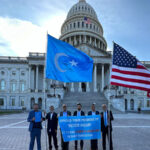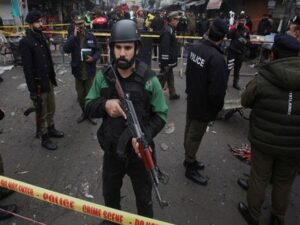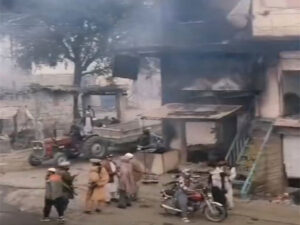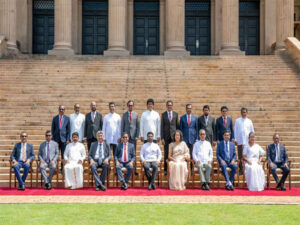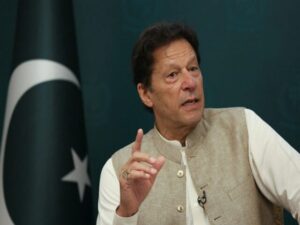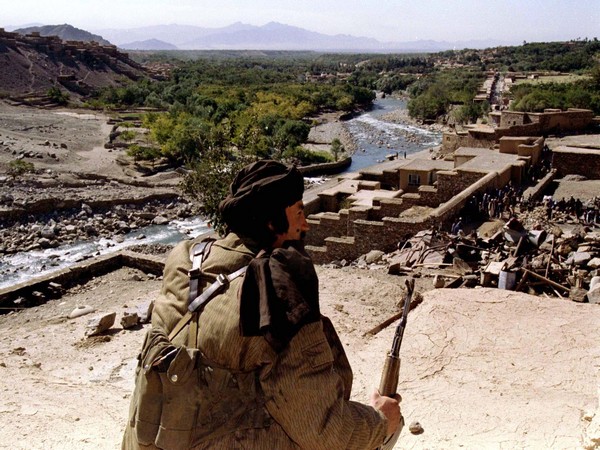
An ethnic Tajik fighter guards the entrance of the Panjshir Valley, north of Kabul as displaced Afghan people prepare to leave the valley October 3. Fighters loyal to famed guerrilla chief [Ahmad Shah Masood ] work to prepare the defence of their valley against an expected assault by Afghanisatn's hardline Islamist Taliban militia. - PBEAHUMXHCS
Kabul [Afghanistan], February 3 (ANI): Taliban government in Afghanistan, which wishes to get international donor agencies to help its struggling economy, has a lot to answer to the world on its continued pursuance of suicide bombing squads and child soldiers, according to a report. Earlier, the Taliban went from an insurgency to a self-declared state when they entered the abandoned presidential palace five months ago.
The leadership immediately professed to have changed from their brutal rule of the 1990s in a desperate attempt to obtain recognition and foreign aid. However, it is clear that some unsettling elements are unlikely to change, as noted by National Interest. Despite their transformation from an insurgency into a government charged with caring for a country of 38 million, suicide bombing remains a key strategy for the Taliban. After assuming power on August 15, the Taliban posted a picture of one of their Istish-haadi squads, displaying their vests, bombs, and improvised explosive devices on social media.
After all, the Taliban no longer needs to keep its suicide endeavors–and training schools–hidden deep in the mountains or in pockets across the Pakistani border, writes Hollie McKay for the National Interest.
During the war, they claimed suicide attacks only targeted the military, but the facts and figures prove otherwise. The crossfire has caught countless civilians over the years. Over the course of the war, scores of Afghans and some Americans were killed by suicide attacks everywhere, from outside North Atlantic Treaty Organization headquarters in Kabul to police stations and checkpoints to the Ministry of Defense and Shia neighborhoods across the country.
On the other hand, almost all of the Taliban’s armed units have a wing for those who are ready and capable of doing the duty at any moment should they be needed. In particular, the elusive Haqqani Network has been deemed the most successful, carrying out hundreds of such attacks throughout the US occupation. The US-designated terrorist group now holds several key positions within the government, including the powerful position of minister of interior.
While the Taliban once used the tactic primarily against members of now-defunct Afghan National Forces, they now seek to use it against their rival colloquially known as the Daesh. In many ways, the emirate has sent the message that its dedication to the cause is what makes it strong and that its internationally illegal practice is a response to the West’s well-grounded and expensive military capabilities and technology.
Child soldiers are one of the six “grave violations” against children listed by the United Nations and are banned by the Geneva Conventions and the Convention on the Rights of the Child. Additionally, opponents of such a crime claim that opposing forces too readily detain children for their involvement in the conflict instead of rehabilitating and treating them as victims of war.
Afghanistan ratified the UN Convention on the Rights of the Child in 1994, two years before the first Taliban regime came to power. In practice, however, the signing seems to have been of little effect, as noted by National Interest. (ANI)
94 per cent of Afghans rate their lives poorly enough to be considered suffering
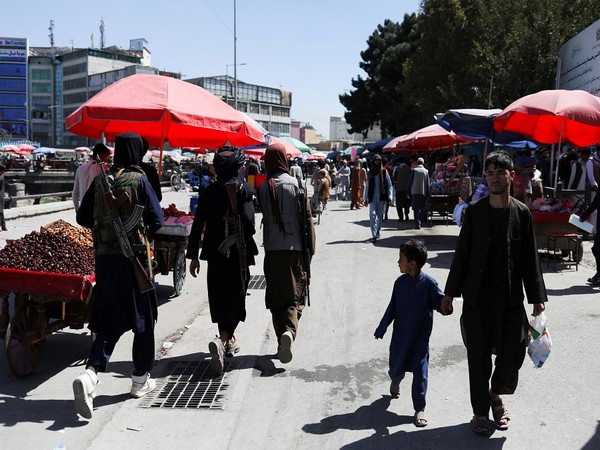
Washington [US], February 3 (ANI): Ninety-four per cent of Afghans rate their lives poorly enough to be considered suffering, according to the Gallup survey, which emphasised that the percentage was “not only a record high for the country but also the highest Gallup has seen for any country since 2005,” said a media report. The new poll indicates that nearly all Afghans, already tormented by decades of war and poverty, say their living conditions have worsened to the point where they say they are “suffering“, reported Voice of America (VOA).
Julie Ray from Gallup said that over 2,000 Afghans ages 15 and up were interviewed in two rounds of questioning which was conducted inside Afghanistan between August 9 and September 29 of last year.
The survey also found that a large number of the male population in Afghanistan believe that women are not treated with respect. “For the first time in the history of Gallup surveys in Afghanistan, the majority of men in Afghanistan (60 per cent) do not feel that women are treated with respect and dignity,” found the poll, according to VOA.
The survey also found that 53 per cent of those Afghans interviewed by the Gallup expressed their desire to leave their country permanently and move to the West.
With regard to the Afghans calling their lives as suffering, Stephen Carter, an Afghanistan expert at the London-based NGO Global Witness, said that people in the Asian nation are absolutely desperate as they are literally facing starvation.
However, the Taliban have rejected the survey and termed it as baseless and misleading. The Taliban‘s spokesperson Zabihullah Mujahid on Tuesday said that spreading baseless reports of disappointments among people is the work of the enemies of Afghanistan.
Ethnic fissures between Taliban may become source of instability in Afghanistan: Report
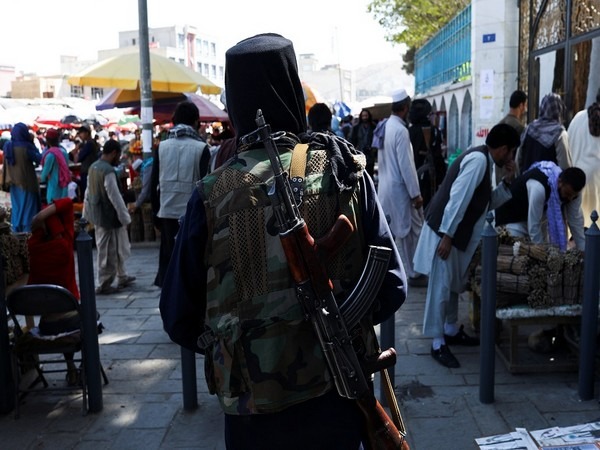
Kabul [Afghanistan], February 2 (ANI): As serious dissensions are ripping through the Taliban over ethnic issues, several reports say that if the divisions continue to deepen in the near future, they may potentially become a source of instability in Afghanistan. In its report, Al Arabiya said, various reports have underlined widening rift between numerically superior Kandaharis (Loya Kandahar) and Pak-controlled Haqqanis (Loya Paktiya). “This division is clear between the Mullah Baradar-led group and that of Interior Minister and leader of the Haqqani Network (HQN) Sirajuddin Haqqani over the latter’s overt pro-Pashtun stance. It is feared that these differences could lead to depletion in Taliban ranks, particularly in provinces dominated by non-Pashtun ethnic groups,” the report said.
The report further stated that it is widely known that the swift Taliban takeover of Afghanistan was made possible without the help of non-Pashtun cadres under its banner. Five months down the line, the non-Pashtuns are becoming restless at the overt Pashtun preference shown by the ruling Taliban.
The growing disgruntlement among the minority partners of the Taliban is acutely visible in the Northern provinces, dominated by non-Pashtun ethnic groups, the reprot noted.
“Reports from the provinces indicate sporadic incidents of Tajik and Uzbek Taliban fighters attempting to disarm Pashtun cadres, while accusing them of having links with global terrorist group Da’esh operating out of Afghanistan,” Al Arabiya reported.
It further reported that the tensions between the Pashtun and non-Pashtun Taliban, particularly in the Northern provinces, were apparent in street protests in January that shook Maimanah City of Faryab following the arrest of senior Uzbek Taliban Commander Makhdoom Alam Rabbani (known to have influence in Faryab, Jowzjan, Sar-e-Pul and Samangan provinces).
“So far, it appears that the Taliban regime has managed to quell the brewing dissent with a heavy hand. Although there has not been open violence, a sense of betrayal amongst non-Pashtun locals in the north remains like a burning ember. Such ethnic fissures could be exploited by the nascent resistance led by Ahmad Massoud to challenge the Taliban regime in Kabul,” the report stated.
Since the regime has so far been unable to tackle the intra-Pashtun power struggle, the brewing dissent among the non-Pashtuns could further undermine its stranglehold and influence, Al Arabiya reported. If the ethnic fissures deepen in the near future, they may potentially become a source of fragmentation and instability in Afghanistan, a threat that could further weaken the Taliban regime, still struggling to consolidate its hold, the report added. (ANI)




